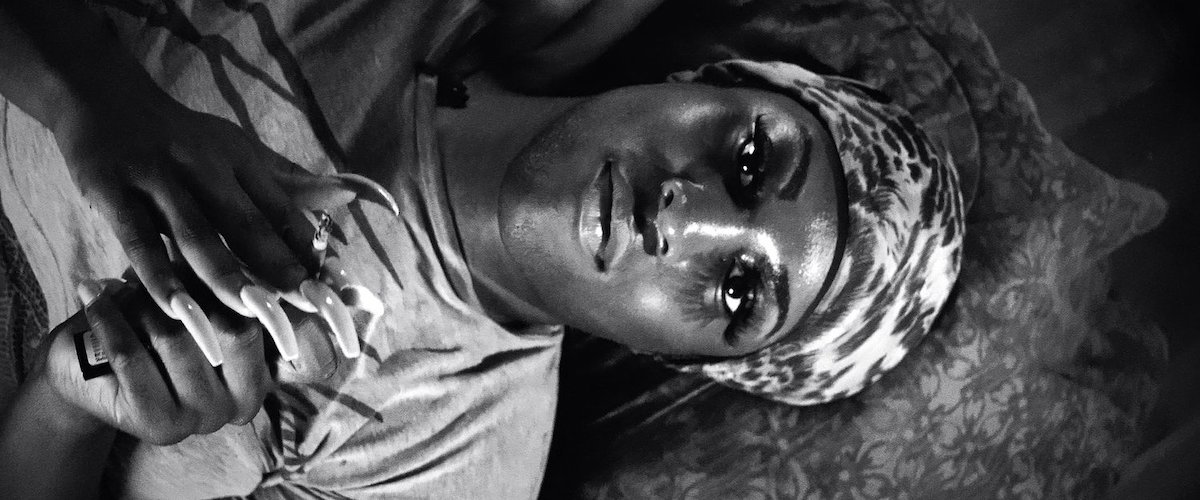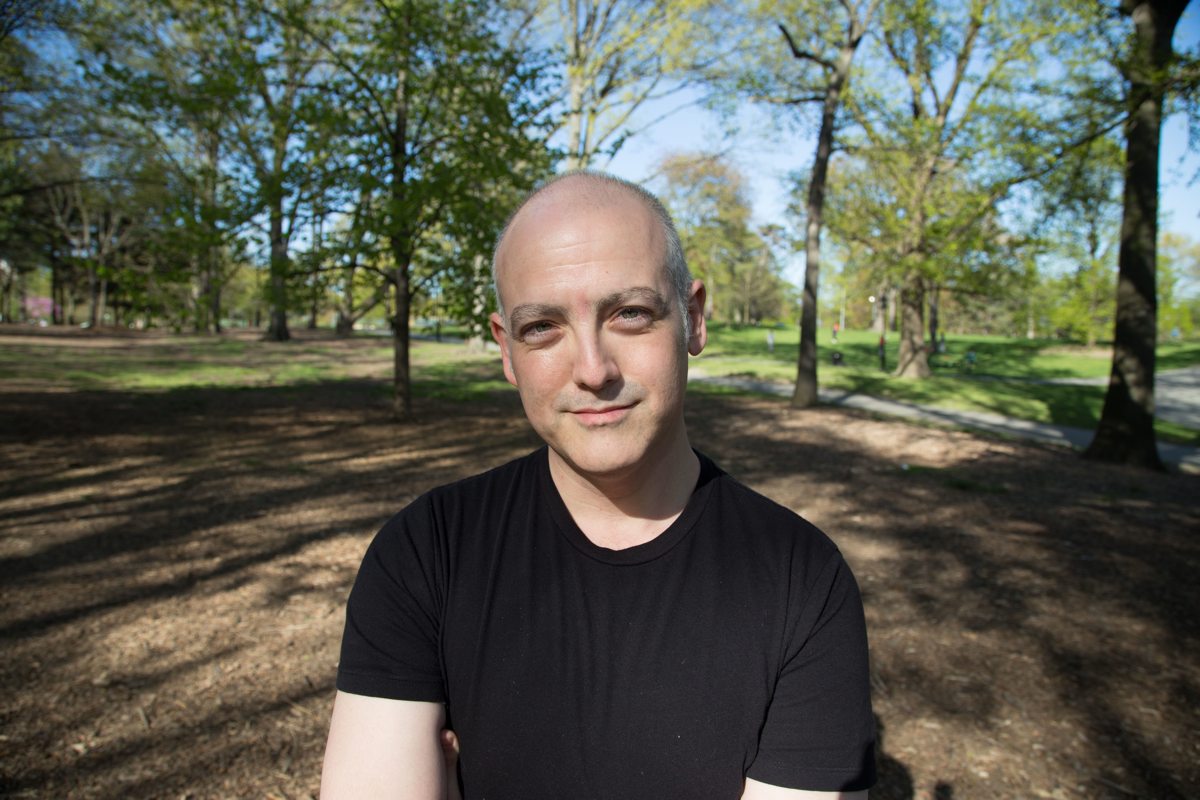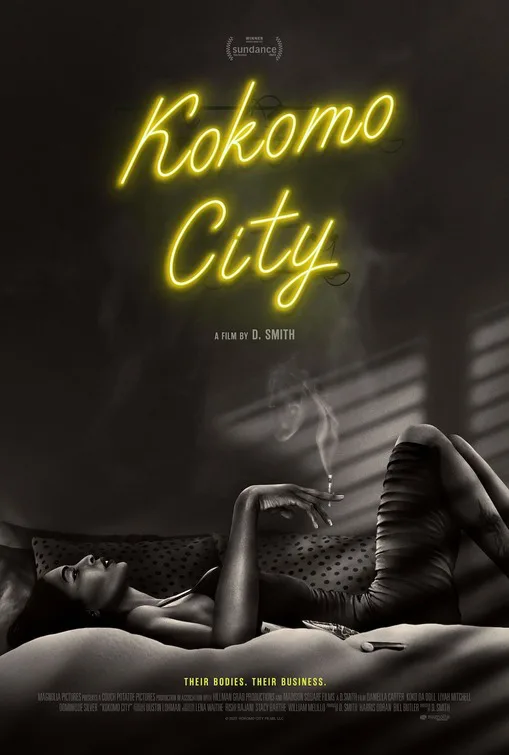Imaginatively edited, sexually explicit, and filled with eloquent and often boisterous individuals of a sort who rarely get to claim a spotlight in documentaries, the trans sex worker portrait "Kokomo City" is a blast of creative freedom in an increasingly corporatized period of nonfiction filmmaking. It focuses on four trans women, Koko Da Doll, Daniella Carter, Liyah Mitchell, and Dominique Silver, interviewing them in their own homes and ordinary public spaces—sometimes glammed up, but more often with little makeup. The black and white imagery links it to a rich mid-century tradition of American documentaries (typified by films like the Maysles Brothers' "Salesman" and Shirley Clarke's "Portrait of Jason") that focused on personalities and aimed for a fly-on-the-wall feeling. But the structure and editing have a punk rock midnight-movie energy, taking pride in flagrantly ignoring the (purely theoretical!) documentary filmmaking handbook of do's and don'ts. The cheeky-blasé subtext is: If you don't like what we're doing, go watch a different movie.
"Kokomo City" is shot and cut by D. Smith, a Black, trans, Grammy-nominated producer who worked with Lil Wayne, Keri Hilson, and Katy Perry. Smith was ostracized by the music industry after coming out in 2014 and appeared on season five of "Love & Hip-Hop: Atlanta," a gig that she now regrets because of how she tried to stand out by (she says) somewhat caricaturing herself. She was also homeless for a while. This movie is a reclamation, a reinvention, and a return. It's bursting with energy, it's all over the place, and there are times when it sorta trips over its ambition. But it's hard to pinpoint, in some faux-objective sense, what does or doesn't "work" because it isn't trying to satisfy any criteria but its own. The whole thing is uncoupled from mainstream/"normie" life and bourgeois concepts of propriety, much like the New York- and Atlanta-based people it depicts.
The opening scene is an extemporaneous monologue about a sex worker taking a gun away from a client, intercut with hyperbolic recreations with an almost Pop Art goofiness (like slapstick comedy scenes in a Baz Luhrmann flick). The monologue is filmed handheld and zoomed-in from several feet away from the speaker, who is sometimes partly obscured by a doorframe. The framing makes the audience feel privileged access to insider knowledge has been granted. This feeling persists through a politically incendiary closing montage with full-frontal nudity, filmed and cut in a way that makes it feel like a 1990s MTV video that MTV would have never dared broadcast. There are partial dramatizations of the subjects' experiences on the job (some of which feature graphic sex scenes with cartoonishly loud sound effects) and low-key, no-fuss hangout scenes where you get to see intimate moments of a more mundane sort (grooming in a bathroom mirror, canoodling on a couch). Smith uses wall-to-wall underscoring in some scenes, a la Spike Lee, lending gritty documentary material a touch of Old Hollywood grandiosity.
These markedly different bits sit next to each other in a linear sequence, as in an anthology film comprised of short subjects. The movie is not interested in easing viewers out of one mode and into the next. This feels not only justified but aesthetically right. The common element joining the subjects' stories is a shared belief, rooted in experience, that most of the world ignores, exploits, or violently persecutes them (one section mourns trans women murdered by clients). So it makes sense that "Kokomo City" wouldn't trouble itself with questions of appropriateness raised by anyone, even viewers from within the community who might object to how Smith puts certain body parts on display.
The film is aware of outsiders looking in and sometimes addresses them directly. But the material also looks inward at the Black and trans community and the places where it intersects—especially the bedroom. The film's title is an allusion to blues singer Kokomo Arnold, whose "Sissy Man" includes the lines, "I woke up this mornin' with my pork grindin' business in my hand/Lord, if you can't send me no woman, please send me some sissy man." The interviewees understand yet are critical of "trade"—the men, married and single, who consort with them secretly. "Gay panic" is often used as a defense by clients who know full well what they snuck out and slunk around to get, cannot reconcile their public-facing macho presentation with the vulnerability and desires that they show behind closed doors, and lie, ghost, or lash out to protect their illusions. "They wanna see a pretty-ass girl with a big d---," Koko says. This past April, a few months after "Kokomo City" won awards on the festival circuit, Koko was murdered in Atlanta.
Despite the often harsh realities of the life it captures, "Kokomo City" is a fundamentally warm and embracing work. It sets its own boundaries and finds peace within them. The loose-limbed, free-flowing approach to the stories lets each speaker become the star of whatever scene they happen to inhabit. Smith told The Guardian that one of her filmmaking influences was 2016's "Joker," especially the scenes that showed the title character living the daily grind without makeup. "I just wanted to re-create the narrative of what trans women truly are," she said. "We're human, and this is what we look like. We look like you, we're fun, and we're vulnerable like you, and we want love like you."
Now playing in theaters.




















